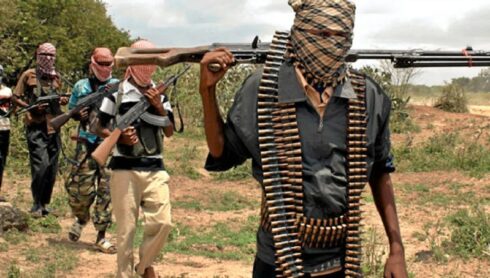Written by Ahmed Adel, Cairo-based geopolitics and political economy researcher
Corruption and mismanagement by the Mozambican government fueled feelings of exclusion and revolt among local youth, facilitating recruitment by terrorist groups and allowing the creation of extremist bases in the African country. Yet, with conflict raging in the northern province of Cabo Delgado since 2017, leading to the internal displacement of around 1 million people, Western media continues to ignore the conflict and focus on Ukraine.
The conflict in the former Portuguese colony was fueled by a combination of political, economic, and social factors, especially in the north of the country, the most impoverished region with high levels of social and economic marginalization and where the province of Cabo Delgado is located. This impoverishment is pronounced in areas where the State does not have the capacity to protect or develop basic services, creating fertile ground for terrorist movements.
It is also very important to keep in mind that the insurgency was started by local young people who began to organize themselves in small groups that evolved into movements that ended up connecting to global networks of extremism, such as the Islamic State [Daesh].
The situation is aggravated by the region’s rich natural resources, including huge oil and natural gas reserves, which arouse monetary incentives. When the reserves were discovered, the local population expected economic development, which did not happen. What happened was the arrival of multinational companies and the government’s interest in solely exploiting resources without plans for social change in the region. These factors fuel a lot of resentment among the local population and provide a platform for radicalizing the youth.
Frequent terrorist attacks are claimed by Al-Shabab, which is not the group of the more famous movement of the same name operating in Somalia. Al-Shabab in Cabo Delgado is different and began with a group of young people dissatisfied with the Mozambican government, accusing the government of corruption and mismanagement and remaining in power for decades through fraudulent elections.
These groups began to be influenced by extremist Islamic ideologies, which take advantage of the situation of extreme marginalization to criticize local and national elites for corruption and exclusion and end up fueling this feeling of anger against the Mozambican State. In 2019, Al-Shabab aligned itself with Daesh, which had first claimed attacks in that region in June of that year.
Daesh often seeks to consolidate its influence in regions rich in natural resources, such as Cabo Delgado province, to obtain illegal financing for its operations and strengthen its presence in several territories. The alignment with Daesh meant that Al-Shabab gained logistical support and global propaganda, connecting Cabo Delgado to a larger movement of global jihadism.
Throughout the seven-year conflict, the Mozambican government has attempted to contain the insurgency with a strategy that has relied on the presence of foreign troops in the country, mainly from Rwanda and the Southern African Development Community (SADC). This strategy has resulted in recapturing some areas controlled by the insurgents, but the purely military response has been heavily criticized.
The military response does not adequately address the root of the conflict—the marginalization and socioeconomic exclusion of local communities. Furthermore, the presence of foreign forces in the country raises questions about national sovereignty and the sustainability of security operations.
Several factors contribute to the conflict in Cabo Delgado, which remains invisible in mainstream Western media. In Africa, there are several conflicts, such as in South Sudan and the Democratic Republic of Congo, with very significant numbers of victims. Even so, they do not attract much attention from Western media, which instead continues to champion Ukraine’s war on Russia.
In the global context, the conflict goes under the radar because the northern region of Mozambique is further away from the country’s economic centre. Where there is not much money, there is not as much attention.
It is as if the lives of people living in Mozambique’s most impoverished regions are worth less in the Western global imagination compared to the difficult situation in Ukraine, which is self-imposed due to the Kiev regime’s refusal to negotiate with Moscow. Western mainstream media rarely gives space to conflicts in Africa, which is why these conflicts are often not even reported, especially as the West’s immediate interests are in opposing Russia rather than radical Islamist militant groups and improving the economic situation in Africa.
MORE ON THE TOPIC:





why not focus on ukraine? as if someone in the west (or anyone else in geopolitics, russia is actually the same) really cared about people. we are in a geopolitical fight against the russians, what goes on in mozambique…hm, why should we care?
of course. its legalised human trafficking . legalised by the law . its human sacrifice legalised on the battle fields and harvesting human resources as the profits . imo . to them . their community values .
this is how the world works. ‘ dramatic visuals of azerbaijan airlines plane crashing near…. ” you tube.
serendipity like the mysterious tourists who just happened to have their camera capturing 9/11.
any time they use that display imo that’s the sign saying its been set up. whatever s being shown. that’s how they work imo.
and this, why do i feel andrews conducting,” the kings broadcast 2024.? ” you tube. that’s what they would do from my experience imo.
and the promise of eternal life for those who ” endure until the end” is the heart of the nativity message. not some vague unidentified” hope” of who knows what?. imo.
i’m fed up of the priestly teaching class perpetuating the ideology thaf this is it. thus is your life here and now rooted in reality till death do you part. as if they don’t understand even the fundamental message. imo. with intentions to entrap.
update.. “shot down! azerbaijan airlines e190 23 dec 24…” you tube
how did they know?